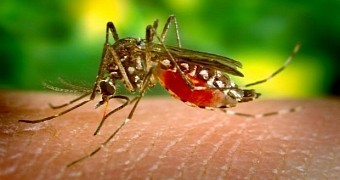It just so happens that mosquitoes don't choose their victims at random. On the contrary, researchers with the London School of Hygiene & Tropical Medicine say that, having carried out a series of experiments, they found that some people get bitten way more often than others.
In a report published in the science journal PLOS ONE, the specialists go on to explain that this is because some individuals are lucky enough to have their body produce compounds that naturally repel mosquitoes and others, well, aren't.
Whether or not mosquitoes like us is beyond our control
The London School of Hygiene & Tropical Medicine scientists say that, as shown by the experiments that they completed with the help of 18 identical and 19 non-identical female twins, a person's genetic makeup appears to influence how appealing they are to mosquitoes.
Thus, the researchers say that their investigation revealed identical twins to be more similar in attractiveness to these pesky insects than non-identical twins. This indicates that there is a genetic component to body odor and that mosquitoes go after specific scents.
The mosquito species used in these experiments was Aedes aegypti. Interestingly, a previous study revealed that female mosquitoes belonging to another species, i.e. Anopheles gambiae, prefer to feed on pregnant women and overweight individuals if given the chance to pick and choose their meals.
The importance of studying mosquito behavior
The trouble with mosquitoes is that they have this habit of spreading all sorts of diseases. Since killing each and every mosquito in the world really isn't an option, scientists hope to solve this problem by getting them to stop biting people.
To achieve this, they must first understand how the insects choose their victims and why it is that some people can dance and prance around an infested swamp without having to worry about losing half of their blood to mosquitoes.
“By investigating the genetic mechanism behind attractiveness to biting insects such as mosquitoes we can move closer to using this knowledge for better ways of keeping us safe from bites and the diseases insects can spread through bites,” said specialist James Logan.

 14 DAY TRIAL //
14 DAY TRIAL //